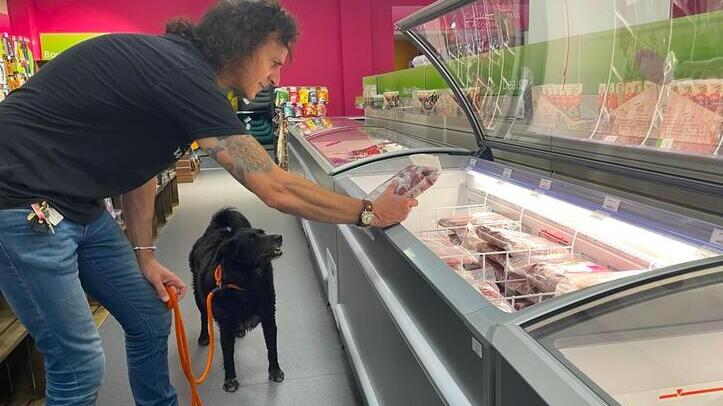A Southampton pet food and accessory retailer is urging dog owners on to include unprocessed food, such as raw meat, in their dog’s diet following the publication of new research from the University of Helsinki linking consumption of kibble at an early age with gastrointestinal problems in the longer term.
Deborah Burrows, managing director of Healthy Pet Store in Southampton, said: “This study supports everything we believe in at Healthy Pet Store and has shown the importance of raw feeding for potentially protecting against gastrointestinal problems. There are also other proven benefits of raw food including improved skin, coat and dental hygiene to name a few.
“Feeding your dog a balanced diet is key and there are easy ways to achieve this with home prepared meals. Even feeding your pet unprocessed food from time to time may offer many benefits for their health. I would recommend incorporating something unprocessed such as raw meat several times a week if you can.”
Researchers at the University of Helsinki in Finland were looking into any link between diet and long-standing gastrointestinal problems known as chronic enteropathies (CE).
For the study, the researchers used data collected through an online feeding frequency survey, introduced in 2009 by the DogRisk research group, comprising survey answers from several thousand Finnish dog owners on issues such as their dog’s diet at three different timepoints, the diseases their dogs have or have had, and environmental factors.
According to the study, feeding a non-processed meat-based diet (“raw food”) and giving the dog human meal leftovers and table scraps especially during puppyhood, but also at young age, were protective against CE later in life. In contrast, feeding mainly or exclusively an ultra-processed carbohydrate-based diet, such as dry dog food/kibble during puppyhood or at young age, or rawhides (which in fact are not raw) often during puppyhood were found to be a significant potential risk factors for CE later in life.
Symptoms of CE include persistent and/or recurrent vomiting, diarrhoea, decreased appetite, abdominal pain and weight loss.
Raw foods found to be protective by owners included raw meats, raw organ meats, raw fish, raw eggs, bones and cartilage, as well as berries such as blueberries and lingonberries.
Chief researcher Kristiina Vuori PhD, from the DogRisk research group and the Helsinki One Health network, said:
“We could see an association between puppyhood and adolescent diet and the prevalence of chronic gastrointestinal symptoms later in life. Thus, proactive owners can influence their dogs’ gut health by providing a variety of fresh, “real” foods for the puppies and young dogs, even as an addition to a kibble-based diet.
“However, the study only suggests an association. Finding out detailed mechanisms and confirming the causal relationship would require diet intervention studies. We have these under way.”
Raw pet food firm Bella & Duke has come out in support of the focus to shift from highly processed diets. Bella & Duke’s Chief Consulting Nutritionist, Rowan Sanderson praised the study for highlighting the importance of feeding meat-based diets.
He said: “The study recently published by the University of Helsinki is a fantastic showcase of the adverse effects a highly-processed diet can have on your pets. Anna Hielm-Björkman has been a huge inspiration behind the work we do at Bella & Duke, we are in complete agreement with the study and that owners would be better off feeding their pets their own leftovers, within reason.
“Many are unaware of the damages the processed, and specifically grain-based pet foods can have on our dogs. We all want the best health for our pets, whilst leftovers may be fine to feed on occasion, the facts show there is nothing better for your pet than a high-quality species-appropriate raw diet, which offers the healthiest and most natural option for your pet.”




